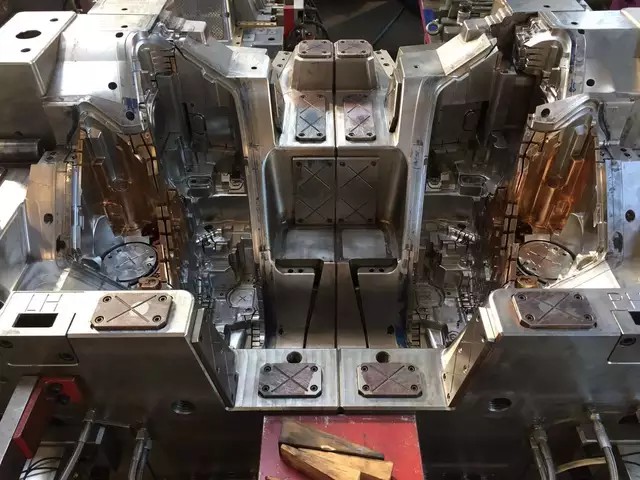Gate of Plastic Mold

The gate is a short groove with a small cross-sectional area for connecting the runner channel to the cavity. The cross-sectional area is small, so the purpose is to obtain
The following effects:
- 1. After the melt is injected into the cavity, the gate is cooled to
solidified
- 2. The runner removal is simple.
- 3. After the runner removal is completed, only a few traces are
left.
- 4. Make the filling balance of multiple cavity easier to control.
- 5. Reduce the over flowing
There are no fixed and fast rules for designing gates. Most of them are based on experience, but there are two basic rules that need to be mentioned:
1. The larger the cross-sectional area of the gate is, the better the gate is, and the shorter the length of the channel will be, the better the gate design is,which could help to reduce the pressure loss when the plastic melt passes.
2. The gate must be narrow so that it can be easily cold-knotted and prevent excessive plastic from flowing backwards. Therefore, the gate should be in the center of the runner, and its cross-section should be as circular as possible.
The gate position
the requirements of the gate location:
- 1. Appearance requirements (gate marks, weld lines)
- 2. Product function requirements
- 3. Mold processing requirements
- 4. Warpage of the product requirements
- 5. gate removal
requirements
the impact on production and function:
Flow Length determines the injection pressure, clamping force, and the product filling.
Shortened flow length reduces injection pressure and clamping force
The gate position will affect the holding pressure
Keep the gate away from the potential force position of the product (such as bearings housing) to avoid residual stress
The location of the gate must be considered for venting to avoid air trapping. Do not place the gate at a weaker location or embed in the product to avoid misalignment (Core Shaft)
the location of the gate
1. Place the gate at the thickest part of the product, and inject from the thickest part to provide better filling and pressure retention.
If the pressure is insufficient, the thinner area will solidify faster than the thicker area.
Avoid placing the gate at a thickness sudden change area to avoid hysteresis or short shots
2. If possible, place the gate in the center of the product
Place the gate in the center of the product to achieve the same flow length
The flow lenght will affect the injection pressure
Central gating allows uniform pressure in all directions to avoid uneven volume shrinkage
Gate size
The size of the gate can be determined by the cross-sectional area and the length of the gate. The following factors determine the optimal size of the gate:
- 1. Compound flow characteristics
- 2. The thickness of the module
- 3. The amount of plastic injected into the cavity
- 4. Melting temperature
- 5. Tool temperature
When determining the location of the gate, the following principles should be followed:
- 1. The plastic injected into each part of
the cavity should be as even as possible.
- 2. Inject the plastic
material into
the mold, and maintain a uniform and stable flow front at all stages of the
injection process.
- 3. It should be considered that there may be weld marks, bubbles, streaks,short
shot
- 4. It should be as easy as possible to make the runner and gate removal operation easy, it
is best to operate automatically.
- 5. The location of the gate should be compatible with all aspects.
Balance of the gate
If a balanced runner system is not available, the following gate balancing method can be used to achieve the goal of uniform injection molding. This method is suitable for molds with a large number of cavities.
Change the length of the gate channel and change the cross-sectional area of the gate.
In another case, when the cavity has different projected areas, the gate needs to be balanced. In this case, to determine the size of the gate, first determine the size of one of the gates and find the corresponding cavity.
Comparing the volume ratios ,and applying this ratio to the comparison of the gates and the corresponding mold cavities, the size of each gate can be successively determined. After the actual test injection, the gate balance operation can be completed.